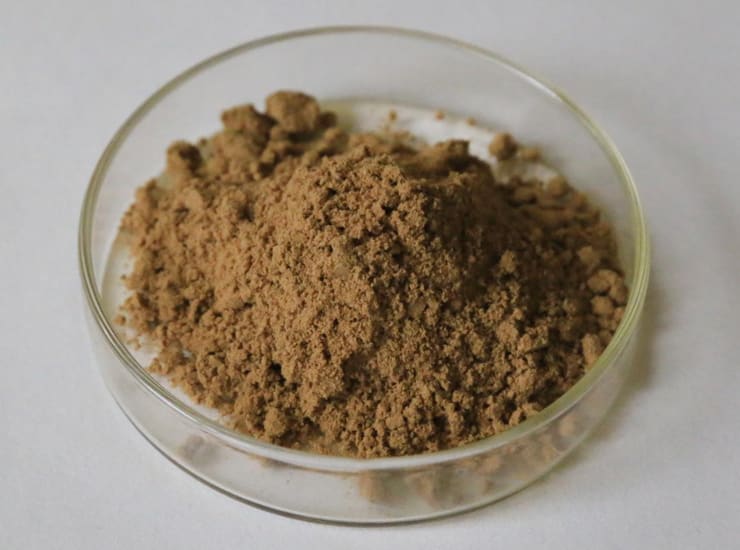Senna is a shrub whose twigs and flowers are used in herbal medicine to fight against constipation problems. Powerful laxative, Senna leaf extract contains active ingredients, such as natural derivatives of anthraquinone, which promote the action of the intestinal flora during transit.
Medicinal properties of senna
INTERNAL USE
- Stimulates intestinal transit as a powerful laxative: for constipation, and digestive disorders.
- Promotes soft stools: hemorrhoids.
- Fight against liver diseases (exclusively in traditional Indian Ayurvedic medicine): anemia, liver disease, jaundice, typhoid fever.
USUAL THERAPEUTIC INDICATIONS
Due to its high content of anthracene derivatives (sennosides A and B), senna is indicated for the treatment of transient constipation.
OTHER THERAPEUTIC INDICATIONS DEMONSTRATED
Senna leaf extract is also used before certain endoscopic medical examinations (colonoscopies) or radiological, as an intestinal purgative. Finally, it promotes the proper functioning of the intestine and the appearance of loose motion, and can, therefore, be recommended by a specialist against pain due to hemorrhoids.
History of the use of senna in herbal medicine
Senna is a plant found in the desert areas of the Arabian Peninsula (Yemen) and Africa (Somalia), whose usage was already used in the ninth century by Arab doctors. Senna also takes its name from the Arabic language. We also note its presence in ancient Egypt, where, associated with Aloe, it was introduced into the anus, using a reed, thus participating in the birth of the first intestinal wash. Transmitted by the Arabs to the Europeans, senna leaf extract served, during the eighteenth century, as a purgative and astringent, pasty form, among sailors. It is now grown in India (Tinnevelly senna, Madras region) for its leaves and pods, rich in natural derivatives of anthraquinone, and flavonoids.
Botanical description of senna
In a circular section, the stem of senna is erect and whitish. The leaf is glabrous, green in color, and hosts between 3 to 6 leaflets, ovoid and elongated. By rubbing them, we get a peanut smell, caused by the rich content of anthracene derivatives B, naphthalenic derivatives, and Sennosides flavonoids. With an average height of 3 cm, the flowers of senna, yellow, grow from August until the first frosts. They are grouped in dense ears. Rich in sennosides, the pods are flat, membranous, and oblong. They contain, under 6 to 8 swellings, seeds that prove toxic.
Use and dosage of senna
DOSAGE
Senna leaf extract is considered a potent laxative, with a dosage of between 30 mg and 36 mg per day (capsules or granules). It stimulates the peristalsis of the large intestine and accelerates the transit, thanks to the anthraquinone derivatives, released by the bacteria of the intestinal flora, following the digestion of the sennosides contained in the senna. Soft stools are caused by the fact that hydrophilic anthracenes inhibit the absorption of water and electrolytes.
Precautions of the Senna
This medicinal plant should be taken under medical supervision. A cure of senna must be brief (limited to 8 or 10 days) and put in place in an episodic way. If no results appear within the first four days, medical consultation is required.
RECOGNIZED BENEFITS
Several clinical studies have shown that senna leaf extract is effective against occasional constipation under medical supervision. Other, more traditional uses have not yet been validated by scientific research. The European Medicines Agency recommends this medicinal plant for adults and children over 12 years old. The World Health Organization recommends senna as a treatment for fever, cough, gonorrhea, and hemorrhoids, but these properties are not scientifically approved. Finally, studies have shown that the use of senna at normal doses (20 mg/day for 6 months) has no impact on the loss of potassium in the elderly.
The plant acts selectively and directly on the large intestine, activating the peristalsis and speeding up intestinal transit with a consequent laxative and purgative effect. At the same time, its active ingredients are absorbed in the small intestine and, through blood and lymph, stimulate peristalsis in the colon.
Senna properties
Senna is a powerful laxative, febrifuge, and vermifuge. In phytotherapy, it is a suitable remedy to stimulate and facilitate bowel evacuation by re-educating the intestine in case of occasional and acute constipation, hemorrhoids, and anal fissures.
Furthermore, the senna leaf extract plays a purifying, antibacterial, and antioxidant action, useful in the case of high cholesterol, thanks to luteolin which, by counteracting the action of the lipase enzyme, decreases the absorption of fat and helps to keep under control the blood values of cholesterol and triglycerides, impure skin, due to the antioxidant action and regulating the intestine stimulates the expulsion of the slag and thus helps to purify and regenerate the skin.








